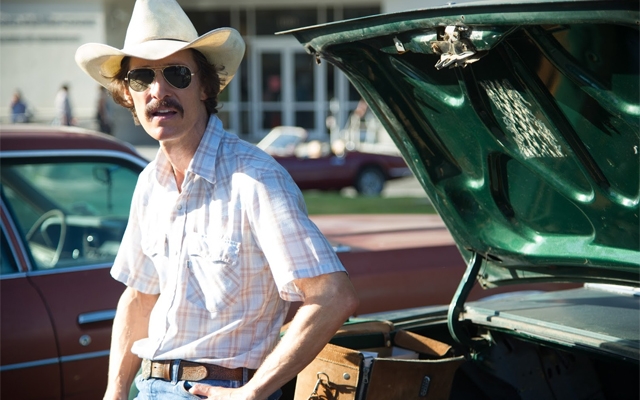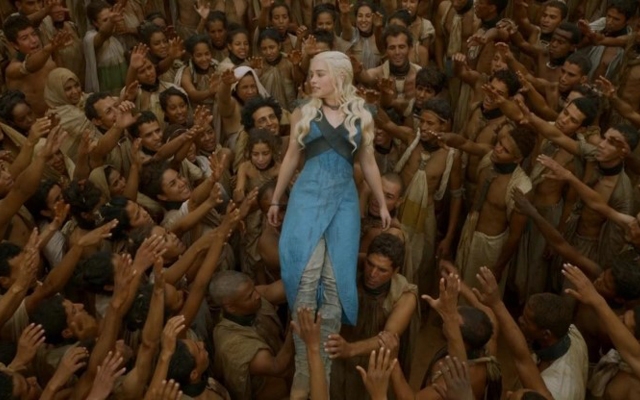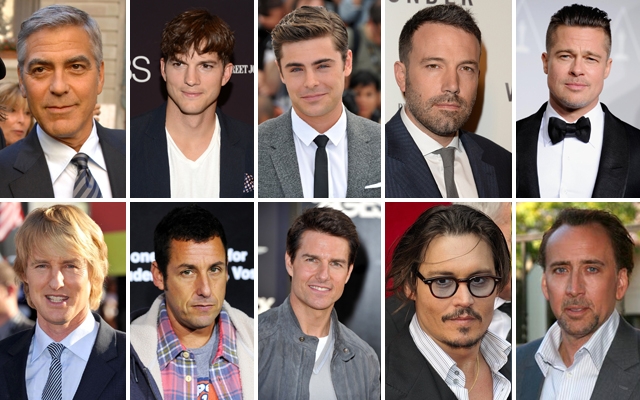Dallas Buyer’s Club, starring Matthew McConaughey, Jared Leto, Jennifer Garner and Steve Zahn is about a rodeo shyster and all-round degenerate, Ron Woodruff (McConaughey), who contracts the HIV virus, and shortly thereafter, AIDS. Based on a true story, it is directed by Jean-Marc Vallée of The Young Victoria success, and has begun to generate a lot of Oscar buzz.
The film opens well, has the watcher playing a real game of double-dutch to keep up with the establishing shots and quickly unfolding narrative. A wall calendar in Woodruff’s trailer home ten minutes in sets the date at 1985. The mid-80’s, when AIDS broke out and was still hugely stigmatized, is prime temporal setting for the tale, and it shows a lot about the movie that this notation of the date remains so subtle (the film, by the way, chooses to keep time via it’s character’s life post-diagnoses: Day 1, Day 7 etc). What it says is this isn’t a simple ‘sympathy’ or ‘awareness’ flic. Within fifteen minutes, the film has developed into a both stark and stylish character drama, and within another thirty, it will develop into much more.
The film makes its leaps largely by establishing simple dialectics. The greatest of which, the one that pushes the narrative furthest, is that between a corrupted pharmaceutical distribution service, the FDA, and a single man struggling for survival and understanding. Helping to set this contrast are more concrete oppositions: Texas’s rich, rig covered earth and the snake-oil salesmen populating it with Mexico’s run-down, license-revoked, real world resourcefulness. A largely ineffective pharmaceutical drug that looks to cure a disease, and the mostly holistic vitamins and supplements that work to stymy symptoms. McConaughey’s bigoted dirtbag to Garner’s caring, penned doctor and later Leto’s gay cross-dresser, which, for the record, he pulls off with pure soul.
Speaking on style, the film provides frequent jump-cuts from its principle character to images of possible comic foils: several clowns, a bull-frog in a bar tank. These flashes, and the general jitterbug of Vallée’s direction, his focus on symbols, provide brief windows into the interiority of its multi-faceted characters as they progress with the tale. What’s thrilling in Vallee’s film is that it seems the necessity of the characters’ circumstances, the narrative itself and not the characters within it, that move the film to such heights. This being said, it could not have been accomplished without champion efforts from all of the actors involved.
There’s a really important video you should watch. It’s called “What Doctors Don’t Know about the Drugs they Prescribe” on TED.com, and it’s a talk from Ben Goldacre about the state of our pharmaceutical system and the peer reviewed journals that interact with it. Essentially, the talk works to reveal the incredible bias towards positive-studies— studies that say a drug works— over negative studies in journal publication. What this means is that even if ten articles are written about a new drug, and only one of them say it works, this will be the only study published in a scientific, peer reviewed journal. It means you and your doctor are completely unaware of how ineffective and possibly harmful this drug is. It’s one of the most pressing issues in your life right now, and it’s one large pharmaceutical companies are not doing much to fix. The Dallas Buyer’s Club reminds me of that talk, not just because of its interest in the inadequacy and injustice of the FDA, but because it’s a movie that’s ultimately about the path to enlightenment, to finding a way to change things and help yourself. You have one life, one eight second bull ride, and you’re responsible for it, which means you can stop at nothing.
The Dallas Buyer’s Club isn’t RENT, and it’s not Philadelphia either. It’s its own, very effective, merciless film that you should see and I’d watch again. It is released in Toronto and Montreal on November 1st, Vancouver on November 8th, and across Canada on November 22nd.












